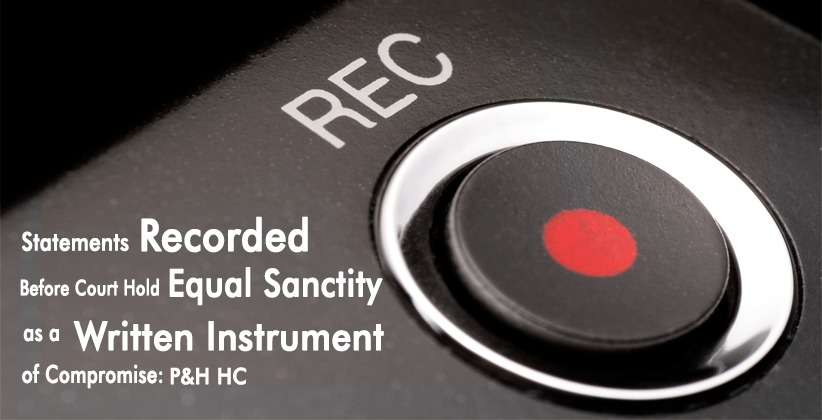Punjab and Haryana HC in a case held that Statements recorded before a Judicial officer in a court of law cannot be said to have lesser sanctity than an instrument of compromise drawn outside the court attested by some oath commissioner notary public or any other authority.
The observation was made by Honble Justice Gurvinder Singh Gill while dismissing a Revision Petition filed by a tenant, against the order of compromise passed by the Appellate Authority under the Haryana Urban (Control of Rent& Eviction) Act, 1973.
The background of the present case is that proceedings were initiated by the landlord- Respondent against tenant-Petitioner for eviction. The petitioner was directed to clear rent arrears by the Rent controller. The order was assailed by the Petitioner before the Appellate Authority which ultimately recorded a compromise between the parties.
However, the Petitioner has redacted from his statements the very next date and moved the application alleging that he was allured into making a statement qua compromise by his counsel and landlord, seeking disposal of his appeal on merits.
Reliance was placed on Gurpreet Singh v. ChaturBhoj Goel, 1988 (1) SCC 270 were by the Supreme Court interpreted Order 23, Rule 3 (Compromise of Suit) of CPC and held that the requirement of a written compromise is mandatory.
The Court in the present case, (LachhmanDass v. Amarjit Singh Sahni) held that A certain sanctity is attached to a statement made by a party in the Court and it has to be presumed that the same was recorded voluntarily. In case a party is permitted to wriggle out of such statements by conveniently raising some frivolous allegations against his counsel or against opposing counsel, then it will virtually lead to the mockery of the Court.
The bench further took reliance on Apex Court decision, Jineshwardas (D) through LRs &Ors v. Jagrani&Anr. 2003 (11) SCC 372, where the top court held that a counsel could compromise a dispute on behalf of his client and that the decree that followed could be the result of a consensus arrived at before the Court and that consensus may not necessarily be a compromise or settlement and adjustment and the same, in a given case, could be a judgment on admission.
The High Court Observed, The position of law, as discerned from the above-referred judgments of Honble Supreme Court, leaves no manner of doubt that a statement made by a party or by his counsel towards a compromise which is taken down in writing is as good as a written compromise and would satisfy the requirements of Order 23 Rule 3 CPC, particularly as regards the provision in Rule 3 which was inserted by way of amendment in the year 1976 i.e. in writing and signed by the parties.
In the case, even though the Petitioner had alleged his counsel of collusion with the opposite party, the bench observed that there was nothing on record to suggest the same.








